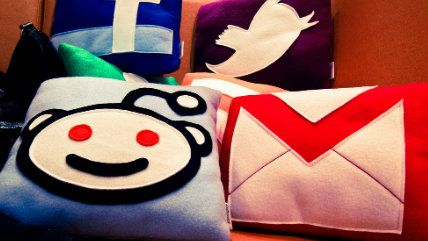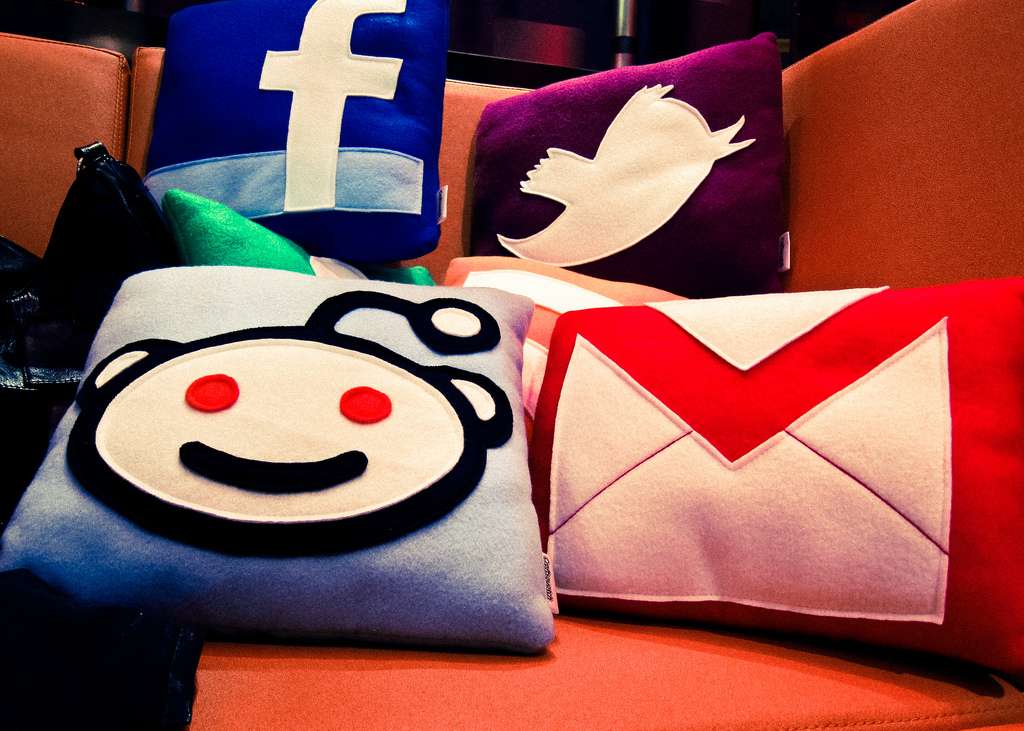The Future of Free Speech on Social Media Looks Grim
Social-media platforms have not so much "disrupted" the old media gatekeepers as they have introduced a watered-down version of the same concept.


Reddit has suffered a rocky year, having weathered months of censorship concerns and subreddit shutdowns. Recent revelations that co-founder and current CEO Steve Huffman was surreptitiously editing Reddit posts critical of him have thrown the community into still more chaos. But Reddit is far from the only social network struggling with the tension between speech and sensitivity. Similar snafus at other services have been dominating recent headlines: there's "fake news" on Facebook, "hate speech" on Twitter, and the continued scourge of rude comment sections.
Social-media platforms are finding it harder to mouth free speech platitudes (and enjoy the corresponding cultural benefits) while at the same time actively curating a sanitized media feed. Yet to not curate or censor is to be accused of aiding and abetting a parade of horribles ranging from online jihadis to the "alt-right."
The so-called "Reddit Revolt" has pitted a coterie of left-leaning "social justice warriors" against a ragtag, right-leaning, and rambunctious crew who call themselves free-speech activists. Tensions between Reddit administrators and certain subreddits—most notably, the pro-Trump subreddit called r/The_Donald and a now-banned conspiracy theory subreddit called r/pizzagate that believes high-level world leaders operate and patronize international child-trafficking rings—have been high over the past year, as these communities' impolitic and often impolite content raised the hackles of the website's generally more liberal operators. Where Huffman, or u/spez as he is known on Reddit, really crossed a line with certain Redditors is when he admitted to amending user comments that were critical of him to appear like they were criticizing moderators of r/The_Donald instead. While some have been able to forgive Huffman's faux pas as an immature but benign troll against a community that constantly causes problems, others have decided to leave the platform all together in search of more censorship-averse websites.
Of course, internet companies like Reddit and Twitter are private corporations that can run their businesses however they see fit. If that includes censorship, so be it. Users are free to seek or build a better alternative—as users of the still relatively-obscure Voat or Gab platforms have—or just stop using the service altogether.
Yet a social network is only as valuable as, well, its network. If everyone you know insists on using a certain service, you're probably going to use that one, too. Even if you don't personally use a particular network, if enough people in a country or planet do use it, then its policies and priorities could have a major impact on your life.
And then there's the value of "free speech" on a conceptual level. If you hold free speech to be an ideal worth fighting for, you will push platforms to protect it, even if it is costly or inconvenient.
This is a conundrum that we didn't have to seriously deal with for a long time. In their early days, social-media platforms were "open" merely by virtue of their limited scale. Far fewer people used these websites, and the early adopters who did were largely internet-hardened veterans of forums and IRC channels who were not exactly allergic to a good flame war.
For years, social media platforms touted this openness as a key cultural and design feature of their services. Former Twitter CEO Dick Costolo famously characterized the microblogging platform as "the free speech wing of the free speech party." Mark Zuckerberg marketed Facebook as a "place where people across the world share their views and ideas." And of course Reddit has long positioned itself as a "free speech site with very few exceptions"—even when said speech was personally revolting to its operators. Only criminal acts, "doxing," IP violations, and perhaps targeted harassment were grounds for platform intervention—and even then, in a limited fashion. Other than that, users were expected to generally work things out among themselves.
This ethos of voluntary collaboration and largely laissez faire moderation characterized early optimism about our odds with "Web 2.0," as perhaps best evidenced by Time magazine's pick for the 2006 Person of the Year: "YOU," meaning all of the people who were commenting and vlogging and sharing and liking the mass of newly-generated digital content for the first time. Our future was no longer shaped primarily by "conflict or great men," wrote Time's Lev Grossman. Rather, our destiny laid in "community and collaboration on a scale never seen before" and "the many wresting power from the few and helping one another for nothing…that will not only change the world, but also change the way the world changes."
It was a pretty picture. Unshackled by the physical restraints of paper, ink, and film, a new breed of dynamic infovores would to produce a plethora of reports and opinions on events around the clock. Walls would be broken down and new perspectives could finally see the light. Media gatekeepers would be more of a luxury—for style and sophistication—than a necessity to deliver a solid product. Children could learn Greek on YouTube! New businesses could be launched from a blog! The revolution—at least those amenable to U.S. foreign policy goals—would be live-Tweeted! Don't like it? Don't click. Or maybe start a change.org petition if you're really fired up.
Initially, the social Internet seemed to deliver the promise of pure online voluntaryism so long theorized by libertarians. And in terms of delivering content and communication, it's worked pretty well. We have more access to more media on more subjects than ever before.
But it is clear now that the relative harmony of early online platforms did not scale very well. As more people with radically diverse beliefs and backgrounds joined in, clashes and controversy were sure to follow. Today, one person's "free speech" is too often another's "bigotry."
One decade on from Grossman's love letter to the social web, we can we can observe "the few" struggling mightily to wrest power back from "the many"—and apparently being heartily cheered on by the crowds in the process. Many of the new features that social media networks roll out these days are tools for blocking controversial content and promoting more sanitized fare. Administrators act less like neutral platform providers, blind and agnostic to the value of user content, and more like editorial curators. In a way, social-media platforms have not so much "disrupted" the old media gatekeepers as they have merely introduced a watered-down version of the same concept.
Perhaps social media's evolution from darling of decentralization to glorified kindergarten cop should have been obvious from the get go. Technology is only a tool. It can amplify or dampen user taste, but rarely fundamentally change it. If 40 percent of your core user base supports censoring certain types of content, you will probably need to build tools that will censor certain types of content.
The vision of a web that is fundamentally open and voluntary was a beautiful one, but perhaps one that erroneously projected its proponents' tastes and backgrounds onto more humans than it actually appealed. Those who value the rough-and-tumble world of an uncensored Internet can still find that in particular private havens across the web. But web Balkanization is here to stay, and most people will choose a sanitized version of digital reality.


Show Comments (102)